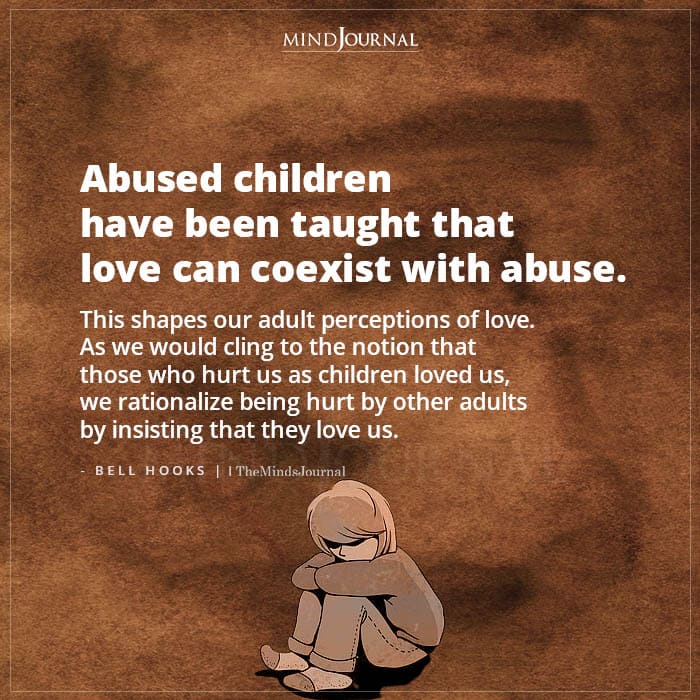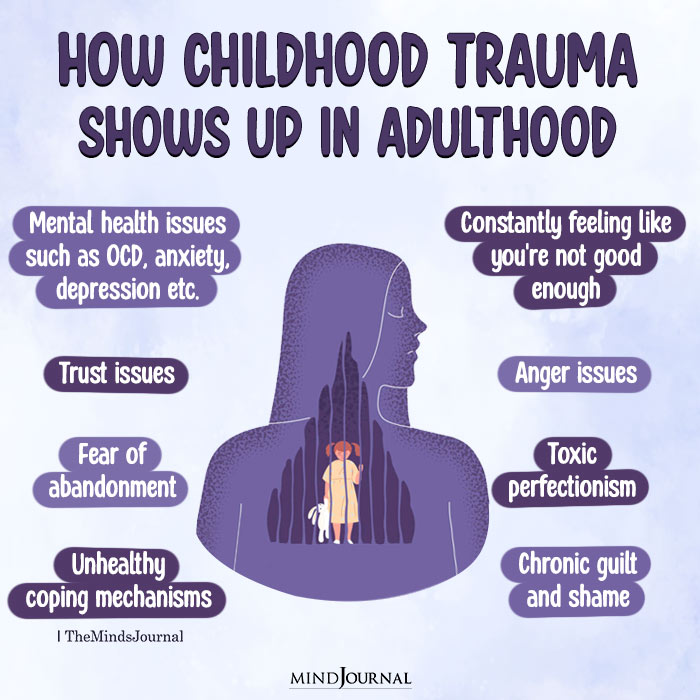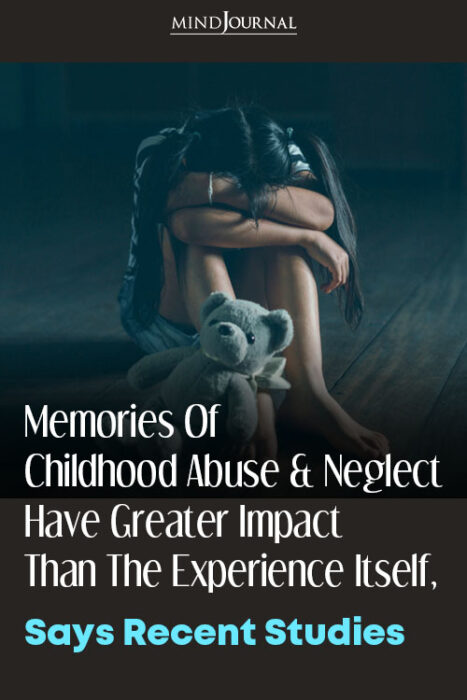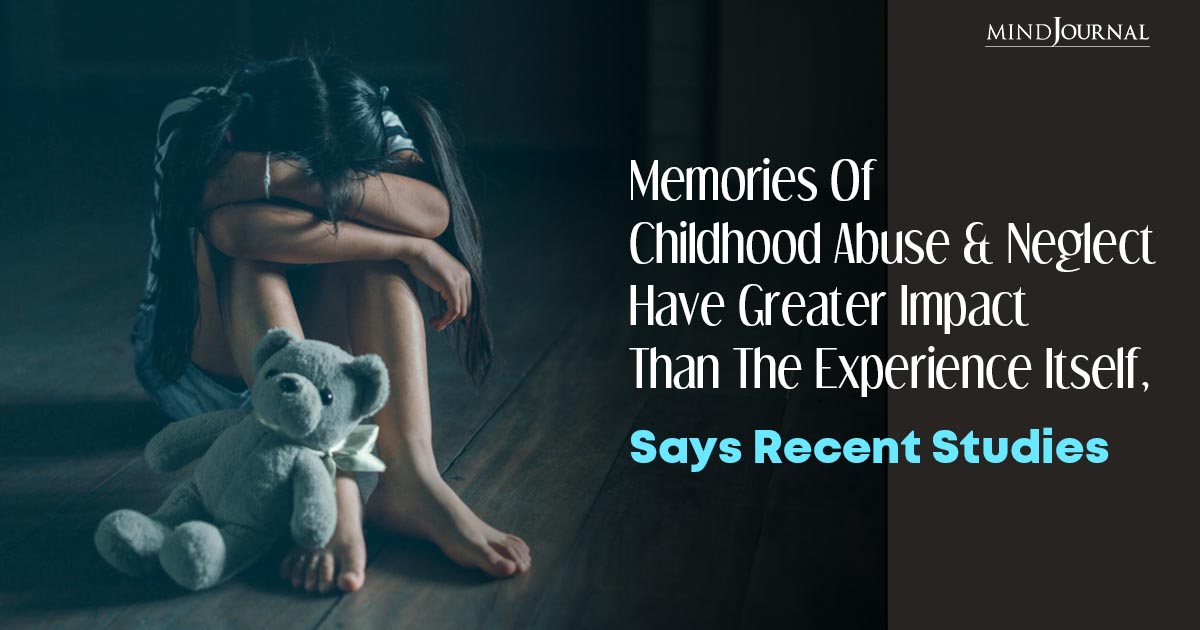New research conducted by King’s College London and City University New York has revealed that the memory of childhood abuse affects mental health.
Read more here: Warning Signs Of Unresolved Trauma: Recognizing The Invisible Scars
Childhood Abuse Affects Mental Health More Than The Real-Time Experience
The study revealed that individuals who recalled maltreatment had increased episodes of depression or anxiety, even without official records.
This underscores the significant importance of memory perception in the identification of mental health issues and the implementation of early interventions.
According to a study published in JAMA Psychiatry, researchers from King’s College London and City University New York conducted a large longitudinal study involving 1,196 participants.
The study aimed to investigate the impact of childhood abuse and neglect on the development of emotional disorders in adulthood.

Read more here: Love Starved: How Childhood Emotional Neglect Breaks You As An Adult
The Findings Were Remarkable
individuals who retrospectively self-reported experiences of childhood maltreatment had a significantly higher number of depressive or anxiety episodes throughout the following decade compared to those who did not remember maltreatment, even when official court records were considered.
Surprisingly, participants who had an official record of childhood maltreatment but did not recall the experiences had a similar number of emotional disorder episodes as those who had no experience of maltreatment at all.
This suggests that the memory and perception of abuse or neglect play a significant role in future mental health than the actual experiences themselves.

Professor of Child & Adolescent Psychiatry at King’s College London Andrea Danese and a joint author of the study emphasized the implications of these findings.
She stated that their study unveiled that the perception and recollection of childhood abuse or neglect by an individual held more significant consequences for future emotional disorders compared to the experiences themselves.
The findings indicated that clinicians could identify individuals at higher risk of subsequent mental health difficulties by utilizing the information provided by their clients, even in the absence of documented evidence of childhood maltreatment.
The study also indicated that the association between self-reported experiences of childhood maltreatment and a higher number of subsequent anxiety and depression episodes was partially explained by participants’ current and past mental health, which was reported during their initial interview.
Emotional disorders can bias memories, potentially making individuals more likely to recall adverse events.
Read more here: 10 Ways To Overcome Childhood Trauma: Grow Beyond Your Childhood Trauma And Reclaim Your Life
Professor Danese further emphasized the importance of understanding how memories of child maltreatment are maintained and exacerbated over time, as well as their impact on daily functioning. This knowledge can provide insights for the development of effective interventions.
The implications of this research are significant, as it suggests that early interventions that assist individuals in coping with memories of abuse and neglect may help prevent emotional problems later in life.
Clinicians can utilize patients’ self-reported experiences of maltreatment, even in the absence of official documentation, to identify those at risk and provide appropriate support and interventions.
The study conducted by King’s College London and City University New York is part of the King’s Maudsley Partnership for Children and Young People, which aims to predict, prevent, and treat mental health disorders in children and young individuals.
This collaborative effort between specialist clinicians and leading academics seeks to find innovative approaches to mental health care.
The new research highlights the significant impact of memory perception on mental health outcomes.
Remembering childhood abuse or neglect has a greater influence on future mental health than the experiences themselves.
Early interventions that address the memories of maltreatment can potentially mitigate the development of emotional disorders later in life.









Leave a Reply
You must be logged in to post a comment.